- Clone
- N59/36 (See other available formats)
- Regulatory Status
- RUO
- Other Names
- GluN2B/NR2B glutamate receptor, Glutamate receptor ionotropic, NMDA 2B, NR2B, NMDAR2B, glutamate receptor, ionotropic, NMDA2B, N-methyl D-aspartate receptor subtype 2B, glutamate [NMDA] receptor subunit epsilon-2
- Previously
-
Covance Catalog# MMS-5148
- Isotype
- Mouse IgG2b, κ
- Ave. Rating
- Submit a Review
- Product Citations
- publications
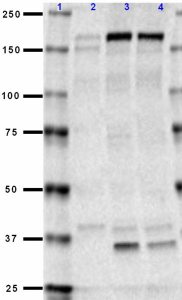
-

Western blot of purified anti-NMDAR2B antibody (clone N59/36). Lane 1: Molecular weight marker; Lane 2: 30 µg of human brain membrane lysate; Lane 3: 5 µg of mouse brain membrane lysate; Lane 4: 5 µg of rat brain membrane lysate. The blot was incubated with 10 µg/mL of the primary antibodies overnight at 4°C, followed by incubation with HRP labeled goat anti-mouse IgG (Cat. No. 405306). Enhanced chemiluminescence was used as the detection system. -

IHC staining of purified anti-NMDAR2B antibody (clone N59/36) on formalin-fixed paraffin-embedded mouse brain tissue. Following antigen retrieval using Sodium Citrate H.I.E.R., the tissue was incubated with 10 µg/ml of the primary antibody overnight at 4°C. BioLegend´s Ultra-Streptavidin (USA) HRP kit (Multi-Species, DAB, Cat. No. 929901) was used for detection followed by hematoxylin counterstaining, according to the protocol provided. The image was captured with a 40X objective. Scale bar: 50 µm -

IHC staining of purified anti-NMDAR2B antibody (clone N59/36) on formalin-fixed paraffin-embedded mouse brain tissue. Following antigen retrieval using Sodium Citrate H.I.E.R., the tissue was incubated with 10 µg/ml of the primary antibody overnight at 4°C. BioLegend´s Ultra-Streptavidin (USA) HRP kit (Multi-Species, DAB, Cat. No. 929901) was used for detection followed by hematoxylin counterstaining, according to the protocol provided. The image was captured with a 40X objective. Scale bar: 50 µm -

IHC staining of purified anti-NMDAR2B antibody (clone N59/36) on formalin-fixed paraffin-embedded human brain tissue. Following antigen retrieval using Sodium Citrate H.I.E.R., the tissue was incubated with 10 µg/ml of the primary antibody overnight at 4°C. BioLegend´s Ultra-Streptavidin (USA) HRP kit (Multi-Species, DAB, Cat. No. 929901) was used for detection followed by hematoxylin counterstaining, according to the protocol provided. The image was captured with a 40X objective. Scale bar: 50 µm -

IHC staining of purified anti-NMDAR2B antibody (clone N59/36) on formalin-fixed paraffin-embedded rat brain tissue. Following antigen retrieval using Sodium Citrate H.I.E.R., the tissue was incubated with 10 µg/ml of the primary antibody overnight at 4°C. BioLegend´s Ultra-Streptavidin (USA) HRP kit (Multi-Species, DAB, Cat. No. 929901) was used for detection followed by hematoxylin counterstaining, according to the protocol provided. The image was captured with a 40X objective.
| Cat # | Size | Price | Quantity Check Availability | Save | ||
|---|---|---|---|---|---|---|
| 818702 | 25 µL | 83 CHF | ||||
| 818701 | 100 µL | 165 CHF | ||||
Glutamate activated Ion channels that are sensitive to N-methyl-D-aspartate (NMDA) are designated NMDA receptors (NMDAR). The NMDA receptor plays an essential role in the induction of LTP in the CA1 and dentate areas of the hippocampus as the specific NMDA antagonist, APV blocks LTP in these areas. This receptor has also been linked to neuronal development and it has been implicated in several disorders of the central nervous system including epilepsy and ischemic neuronal cell death. The NR1 protein can form NMDA activated channels when expressed in Xenopus oocytes but the currents in such channels are much smaller than those seen in situ. Channels with more physiological characteristics are produced when the NR1 subunit is combined with one or more of the NMDAR2 (NR2 A-D) subunits.
Product DetailsProduct Details
- Verified Reactivity
- Human, Mouse, Rat
- Antibody Type
- Monoclonal
- Host Species
- Mouse
- Immunogen
- This monoclonal antibody was raised against a fusion protein corresponding to amino acids 20-271 (extracellular, N-terminus) of rat GluN2B/NR2B glutamate receptor protein.
- Formulation
- Phosphate-buffered solution.
- Preparation
- The antibody was purified by affinity chromatography.
- Concentration
- 1 mg/ml
- Storage & Handling
- This antibody should be handled aseptically as it is free of preservatives such as Sodium Azide. Store this antibody undiluted between 2°C and 8°C. Please note the storage condition for this antibody has been changed from -20°C to between 2°C and 8°C. You can also check the vial label or CoA to find the proper storage conditions.
- Application
-
WB - Quality tested
IHC-P - Verified - Recommended Usage
-
Each lot of this antibody is quality control tested by Western blotting. For Western blotting, the suggested use of this reagent is 5.0 - 10.0 µg per ml. For immunohistochemistry on formalin-fixed paraffin-embedded tissue, a concentration range of 5.0 - 10.0 µg/ml is suggested. It is recommended that the reagent be titrated for optimal performance for each application.
- Application Notes
-
This antibody is less reactive in human tissue in Western Blot
- Product Citations
-
- RRID
-
AB_2564823 (BioLegend Cat. No. 818702)
AB_2564823 (BioLegend Cat. No. 818701)
Antigen Details
- Structure
- Expected MW: 166 kD
- Cell Type
- Glutamatergic Neurons
- Biology Area
- Cell Biology, Neuroscience, Neuroscience Cell Markers, Synaptic Biology
- Molecular Family
- Postsynaptic proteins
- Gene ID
- 24410 View all products for this Gene ID
- UniProt
- View information about NMDAR2B on UniProt.org
Related Pages & Pathways
Pages
Related FAQs
Other Formats
View All NMDAR2B Reagents Request Custom Conjugation| Description | Clone | Applications |
|---|---|---|
| Purified anti-NMDAR2B | N59/36 | WB,IHC-P |
Customers Also Purchased
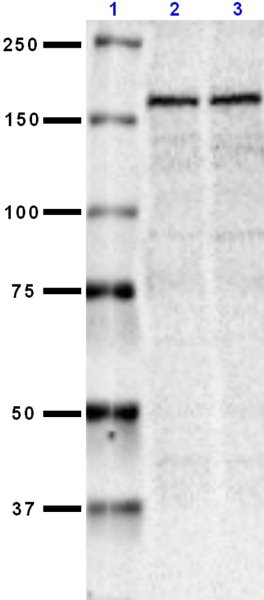
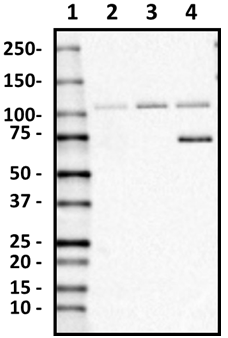
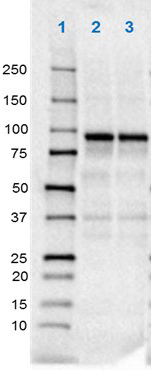
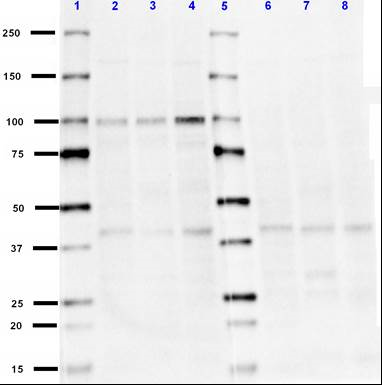
Compare Data Across All Formats
This data display is provided for general comparisons between formats.
Your actual data may vary due to variations in samples, target cells, instruments and their settings, staining conditions, and other factors.
If you need assistance with selecting the best format contact our expert technical support team.
-
Purified anti-NMDAR2B
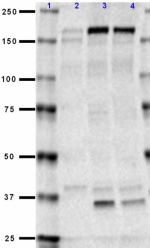
Western blot of purified anti-NMDAR2B antibody (clone N59/36... 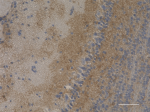
IHC staining of purified anti-NMDAR2B antibody (clone N59/36... 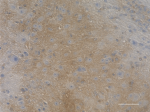
IHC staining of purified anti-NMDAR2B antibody (clone N59/36... 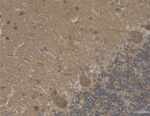
IHC staining of purified anti-NMDAR2B antibody (clone N59/36... 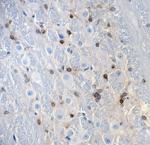
IHC staining of purified anti-NMDAR2B antibody (clone N59/36...
 Login / Register
Login / Register 












Follow Us